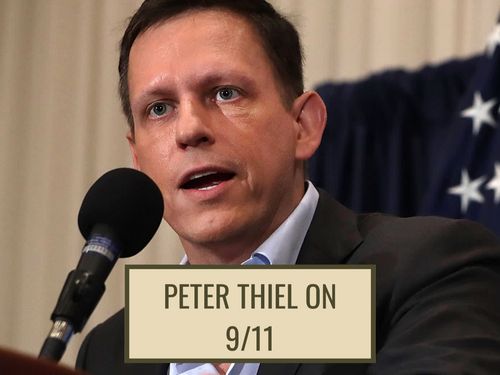The Straussian Moment by Peter Thiel
Sep 28, 2021 · 2 mins read
0
Share

Peter Thiel, perhaps the world's most interesting billionaire, wrote The Straussian Moment partially in response to 9/11. In the essay he sets out to do nothing less than a "reexamination of the foundations of modern politics."
Save
Share
Modern politics puts material wealth above all. There were massive wealth transfers post World War 2 to avoid a buildup of resentment that could explode violently. But 9/11 happened not via the wretched of the Earth, but via Bin laden, a man worth more than $250 million.
Save
Share
9/11 forced the West to return to fundamental religious questions. Peter Thiel argues both capitalism and the enlightenment shut out such questions over the last 500 years. Capitalism wants "violent debates about truth...eliminated" as they're not conducive to making money.
Save
Share
The enlightenment preferred peace to ceaseless religious war. For peace, it was ready to pay the price of sweeping divisive religious questions under the carpet. Therefore "enlightenment" did the opposite of what the name suggests - it put the West into an "intellectual slumber."
Save
Share
Peter Thiel: "Locke says that it is in humanity’s nature to know nothing about the nature of humanity, Schmitt responds that is equally a part of the human condition to be divided by such questions and to be forced to take sides."
Save
Share
9/11 was the moment when people finally took sides. But Thiel writes the "unfolding confrontation between the West and Islam" is viewed very differently by the two sides. The Islamic side retains "a strong religious conception of reality" while the Western side doesn't.
Save
Share
In the West there's confusion on "why there should be a civilizational war at all." The West prefers to view the conflict as some miscreants resisting the legitimate project of liberal democracy, and skirts around entertaining the "larger meaning to the struggle."
Save
Share
But one side's indifference to a civilizational war doesn't mean it won't be fought. As Leo Strauss wrote, in a conflict one side's actions “will depend to a certain extent on what the enemy—possibly an absolutely unscrupulous and savage enemy—forces it to do.”
Save
Share
A nation is not just a mechanistic structure that needs occasional repairs. It is an organic being with a distinct personality that is born and can die. Strauss tried to pull people's attention to these founding conditions in which civilizations are born from disorder.
Save
Share
Bottom line. The enlightenment project & capitalism wish for religious questions to stay buried, but 9/11 forced them to the surface again. The adversarial nature of politics comes from these divisive religious questions. No amount of progress can make these questions irrelevant.
Save
Share
0